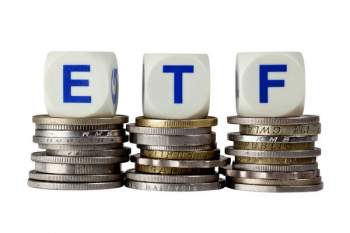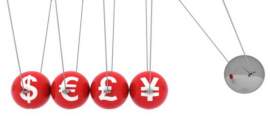
ETF: What you must know

What is an ETF?
• An ETF or Exchange-traded fund is an investment fund traded on a stock exchange like an ordinary equity or stock. An ETF is an agglomeration, which holds numerous assets, such as commodities, bonds or stocks. The majority of ETF’s will track an index or a bundle of popular assets, such as the S&P 500; an ETF will trade close to its net asset value over the course of a trading day and is viewed as an attractive investment due to its low cost, stock-like features and tax efficiency.
Who Buys and Sells ETFs?
• In general, only authorized market participants, such as large institutional investors, will buy or sells shares of an ETF. When managers of these funds purchase an ETF they do so in a direct fashion, by transacting with a fund manager. Given the characteristics of an ETF, the majority of purchases are made in creation units, or large blocks of tens of thousands of shares. Furthermore, when purchased, an ETF will be bundled with an underlying bundle of assets.
• Authorized participants may wish to invest in an ETF over the long-term, but will most often act as a market maker to provide liquidity of the ETF shares and to help ensure that their market price is proportional or equal to the net asset value of the underlying assets. Other common purchasers or sellers of an ETF will include retail brokers, although these individuals will typically transact in the secondary market.
Basic Characteristics of an ETF:
• An ETF combines the tradability features of a closed-end fund and the valuation features of a unit investment trust or mutual fund. These characteristics enable an ETF to be bought or sold at the end of each trading day for its respective net asset value.
• An ETF enables public investors to purchase an undivided interest in a pool of securities and other assets in a fashion akin to a traditional mutual fund; however, shares of an ETF may be purchased or sold throughout the day like a stock. Furthermore, unlike a traditional mutual fund, an ETF will not be sold or redeemed by their individual shares at their net asset values. Instead, a financial institution will purchase and subsequently redeem an ETF directly from the fund itself, but only in large quantities.
• The ability to purchase and redeem large quantities of an ETF trigger an arbitrage mechanism that is solely intended to minimize the potential for deviation between the net asset value of the ETF shares and the market price.
• An ETF is a transparent investment; institutional investors will know exactly what each individual asset’s portfolio will consist of. In the United States, the majority of ETFs are offered as an open-ended management investment company—the same structure used by money market funds and mutual funds.
How is an ETF Regulated?
An ETF must be registered, according to the Securities and Exchange Commission, as an open-end management investment company. As a result, the ETF must comply with following regulations:
• The ETF must issue or redeem creation units in exchange for the deposit of basket assets whose current value is disseminated per share by a national securities exchange at regular trading intervals throughout the day• The ETF must identify itself as an ETF in any sales literature• The ETF must issue shares that are approved for listing and trading on an exchange system• The ETF must disclose, each business day, the net asset value and closing market price of the fund’s shares



















